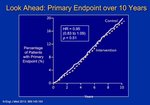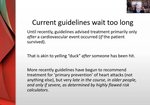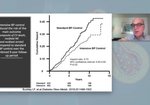Getting Patients Started with an Obesity Treatment Option for Adults
Indication
Zepbound® (tirzepatide) injection is indicated as an adjunct to a reduced-calorie diet and increased physical activity for chronic weight management in adults with an initial body mass index (BMI) of:
- 30 kg/m2 or greater (obesity) or
- 27 kg/m2 or greater (overweight) in the presence of at least one weight-related comorbid condition (e.g., hypertension, dyslipidemia, type 2 diabetes mellitus, obstructive sleep apnea, or cardiovascular disease).
Limitations of Use:
- Zepbound contains tirzepatide. Coadministration with other tirzepatide-containing products or with any glucagon-like peptide-1 (GLP-1) receptor agonist is not recommended.
- The safety and efficacy of Zepbound in combination with other products intended for weight management, including prescription drugs, over-the-counter drugs, and herbal preparations, have not been established.
- Zepbound has not been studied in patients with a history of pancreatitis.
Important Safety Information
WARNING: RISK OF THYROID C-CELL TUMORS
In rats, tirzepatide causes dose-dependent and treatment-duration-dependent thyroid C-cell tumors at clinically relevant exposures. It is unknown whether Zepbound causes thyroid C-cell tumors, including medullary thyroid carcinoma (MTC), in humans as human relevance of tirzepatide-induced rodent thyroid C-cell tumors has not been determined.
Zepbound is contraindicated in patients with a personal or family history of MTC or in patients with Multiple Endocrine Neoplasia syndrome type 2 (MEN 2). Counsel patients regarding the potential risk for MTC with the use of Zepbound and inform them of symptoms of thyroid tumors (e.g., a mass in the neck, dysphagia, dyspnea, persistent hoarseness). Routine monitoring of serum calcitonin or using thyroid ultrasound is of uncertain value for early detection of MTC in patients treated with Zepbound.
Zepbound is contraindicated in patients with a personal or family history of MTC or in patients with MEN 2, and in patients with known serious hypersensitivity to tirzepatide or any of the excipients in Zepbound. Serious hypersensitivity reactions including anaphylaxis and angioedema have been reported with tirzepatide.
Risk of Thyroid C-cell Tumors: Counsel patients regarding the potential risk for MTC with the use of Zepbound and inform them of symptoms of thyroid tumors (e.g., a mass in the neck, dysphagia, dyspnea, persistent hoarseness). Routine monitoring of serum calcitonin or using thyroid ultrasound is of uncertain value for early detection of MTC in patients treated with Zepbound. Such monitoring may increase the risk of unnecessary procedures, due to the low test specificity for serum calcitonin and a high background incidence of thyroid disease. Significantly elevated serum calcitonin values may indicate MTC and patients with MTC usually have calcitonin values >50 ng/L. If serum calcitonin is measured and found to be elevated, the patient should be further evaluated. Patients with thyroid nodules noted on physical examination or neck imaging should also be further evaluated.
Severe Gastrointestinal Disease: Use of Zepbound has been associated with gastrointestinal adverse reactions, sometimes severe. In clinical trials, severe gastrointestinal adverse reactions were reported more frequently among patients receiving Zepbound (5 mg 1.7%, 10 mg 2.5%, 15 mg 3.1%) than placebo (1.0%). Zepbound has not been studied in patients with severe gastrointestinal disease, including severe gastroparesis, and is therefore not recommended in these patients.
Acute Kidney Injury: Use of Zepbound has been associated with acute kidney injury, which can result from dehydration due to gastrointestinal adverse reactions to Zepbound, including nausea, vomiting, and diarrhea. In patients treated with GLP-1 receptor agonists, there have been postmarketing reports of acute kidney injury and worsening of chronic renal failure, which may sometimes require hemodialysis. Some of these events have been reported in patients without known underlying renal disease. A majority of the reported events occurred in patients who had experienced nausea, vomiting, diarrhea, or dehydration. Monitor renal function in patients reporting adverse reactions to Zepbound that could lead to volume depletion.
Acute Gallbladder Disease: Treatment with Zepbound and GLP-1 receptor agonists is associated with an increased occurrence of acute gallbladder disease. In clinical trials of Zepbound, cholelithiasis was reported in 1.1% of Zepbound-treated patients and 1.0% of placebo-treated patients, cholecystitis was reported in 0.7% of Zepbound-treated patients and 0.2% of placebo-treated patients, and cholecystectomy was reported in 0.2% of Zepbound-treated patients and no placebo-treated patients. Acute gallbladder events were associated with weight reduction. If cholecystitis is suspected, gallbladder diagnostic studies and appropriate clinical follow-up are indicated.
Acute Pancreatitis: Acute pancreatitis, including fatal and non-fatal hemorrhagic or necrotizing pancreatitis, has been observed in patients treated with GLP-1 receptor agonists, or tirzepatide. In clinical trials of tirzepatide for a different indication, 14 events of acute pancreatitis were confirmed by adjudication in 13 tirzepatide-treated patients (0.23 patients per 100 years of exposure) versus 3 events in 3 comparator-treated patients (0.11 patients per 100 years of exposure). In Zepbound clinical trials, 0.2% of Zepbound-treated patients had acute pancreatitis confirmed by adjudication (0.14 patients per 100 years of exposure) versus 0.2% of placebo-treated patients (0.15 patients per 100 years of exposure). Zepbound has not been studied in patients with a prior history of pancreatitis. It is unknown if patients with a history of pancreatitis are at higher risk for development of pancreatitis on Zepbound. Observe patients for signs and symptoms, including persistent severe abdominal pain sometimes radiating to the back, which may or may not be accompanied by vomiting. If pancreatitis is suspected, discontinue Zepbound and initiate appropriate management. If the diagnosis of pancreatitis is confirmed, Zepbound should not be restarted.
Hypersensitivity Reactions: There have been postmarketing reports of serious hypersensitivity reactions (e.g., anaphylaxis, angioedema) in patients treated with tirzepatide. In Zepbound clinical trials, 0.1% of Zepbound-treated patients had severe hypersensitivity reactions compared to no placebo-treated patients. If hypersensitivity reactions occur, advise patients to promptly seek medical attention and discontinue use of Zepbound. Do not use in patients with a previous serious hypersensitivity reaction to tirzepatide or any of the excipients in Zepbound. Use caution in patients with a history of angioedema or anaphylaxis with a GLP-1 receptor agonist because it is unknown if such patients will be predisposed to these reactions with Zepbound.
Hypoglycemia: Zepbound lowers blood glucose and can cause hypoglycemia. In a trial of patients with type 2 diabetes mellitus and BMI ≥27 kg/m2, hypoglycemia (plasma glucose <54 mg/dL) was reported in 4.2% of Zepbound-treated patients versus 1.3% of placebo-treated patients. In this trial, patients taking Zepbound in combination with an insulin secretagogue (e.g., sulfonylurea) had increased risk of hypoglycemia (10.3%) compared to Zepbound-treated patients not taking a sulfonylurea (2.1%). Hypoglycemia has also been associated with ZEPBOUND and GLP-1 receptor agonists in adults without type 2 diabetes mellitus. There is also increased risk of hypoglycemia in patients treated with tirzepatide in combination with insulin. Inform patients of the risk of hypoglycemia and educate them on the signs and symptoms of hypoglycemia. In patients with diabetes mellitus, monitor blood glucose prior to starting Zepbound and during Zepbound treatment. The risk of hypoglycemia may be lowered by a reduction in the dose of sulfonylurea (or other concomitantly administered insulin secretagogue) or insulin.
Diabetic Retinopathy Complications in Patients with Type 2 Diabetes Mellitus: Rapid improvement in glucose control has been associated with a temporary worsening of diabetic retinopathy. Tirzepatide has not been studied in patients with non-proliferative diabetic retinopathy requiring acute therapy, proliferative diabetic retinopathy, or diabetic macular edema. Patients with a history of diabetic retinopathy should be monitored for progression of diabetic retinopathy.
Suicidal Behavior and Ideation: Suicidal behavior and ideation have been reported in clinical trials with other chronic weight management products. Monitor patients treated with Zepbound for the emergence or worsening of depression, suicidal thoughts or behaviors, and/or any unusual changes in mood or behavior. Discontinue Zepbound in patients who experience suicidal thoughts or behaviors. Avoid Zepbound in patients with a history of suicidal attempts or active suicidal ideation.
The most common adverse reactions, reported in ≥5% of patients treated with Zepbound are: nausea, diarrhea, vomiting, constipation, abdominal pain, dyspepsia, injection site reactions, fatigue, hypersensitivity reactions, eructation, hair loss, and gastroesophageal reflux disease.
Drug Interactions: Zepbound lowers blood glucose. When initiating Zepbound, consider reducing the dose of concomitantly administered insulin secretagogues (e.g., sulfonylureas) or insulin to reduce the risk of hypoglycemia. Zepbound delays gastric emptying and thereby has the potential to impact the absorption of concomitantly administered oral medications. Caution should be exercised when oral medications are concomitantly administered with Zepbound. Monitor patients on oral medications dependent on threshold concentrations for efficacy and those with a narrow therapeutic index (e.g., warfarin) when concomitantly administered with Zepbound.
Pregnancy: Advise pregnant patients that weight loss is not recommended during pregnancy and to discontinue Zepbound when a pregnancy is recognized. Available data with tirzepatide in pregnant patients are insufficient to evaluate for a drug-related risk of major birth defects, miscarriage, or other adverse maternal or fetal outcomes. Based on animal reproduction studies, there may be risks to the fetus from exposure to tirzepatide during pregnancy. There will be a pregnancy exposure registry that monitors pregnancy outcomes in women exposed to Zepbound (tirzepatide) during pregnancy. Pregnant patients exposed to Zepbound and healthcare providers are encouraged to contact Eli Lilly and Company at 1-800-LillyRx (1-800-545-5979).
Lactation: There are no data on the presence of tirzepatide or its metabolites in animal or human milk, the effects on the breastfed infant, or the effects on milk production. The developmental and health benefits of breastfeeding should be considered along with the mother’s clinical need for Zepbound and any potential adverse effects on the breastfed infant from Zepbound or from the underlying maternal condition.
Females and Males of Reproductive Potential: Use of Zepbound may reduce the efficacy of oral hormonal contraceptives due to delayed gastric emptying. This delay is largest after the first dose and diminishes over time. Advise patients using oral hormonal contraceptives to switch to a non-oral contraceptive method or add a barrier method of contraception, for 4 weeks after initiation with Zepbound and for 4 weeks after each dose escalation.
Pediatric Use: The safety and effectiveness of Zepbound have not been established in pediatric patients less than 18 years of age.
Please see accompanying Prescribing Information, including Boxed Warning about possible thyroid tumors, including thyroid cancer, and Medication Guide.
Please see Instructions for Use included with the pen.
ZP HCP ISI 08NOV2023
Zepbound® and its delivery device base are trademarks owned or licensed by Eli Lilly and Company, its subsidiaries, or affiliates
PP-ZP-US-0500 03/2024 ©Lilly USA, LLC 2024. All rights reserved.




















